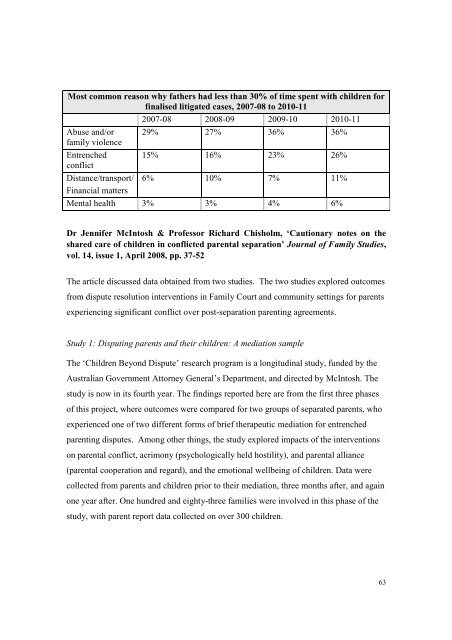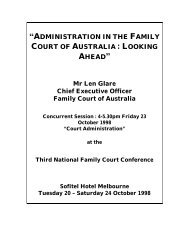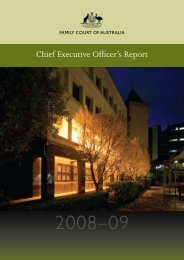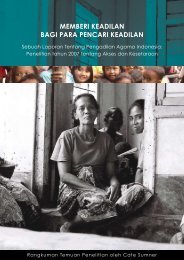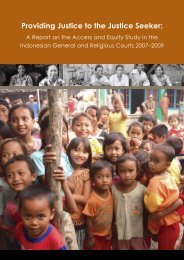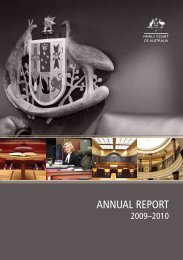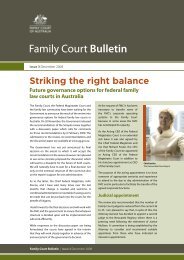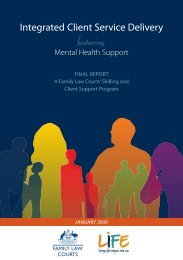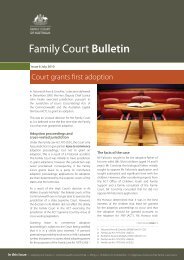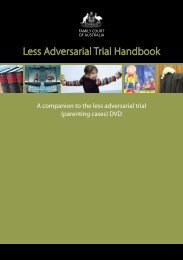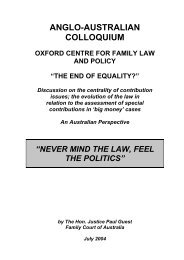Attachment Theory and the Family Violence Reforms
Attachment Theory and the Family Violence Reforms
Attachment Theory and the Family Violence Reforms
You also want an ePaper? Increase the reach of your titles
YUMPU automatically turns print PDFs into web optimized ePapers that Google loves.
Most common reason why fa<strong>the</strong>rs had less than 30% of time spent with children forfinalised litigated cases, 2007-08 to 2010-112007-08 2008-09 2009-10 2010-11Abuse <strong>and</strong>/or 29% 27% 36% 36%family violenceEntrenchedconflict15% 16% 23% 26%Distance/transport/ 6% 10% 7% 11%Financial mattersMental health 3% 3% 4% 6%Dr Jennifer McIntosh & Professor Richard Chisholm, ‘Cautionary notes on <strong>the</strong>shared care of children in conflicted parental separation’ Journal of <strong>Family</strong> Studies,vol. 14, issue 1, April 2008, pp. 37-52The article discussed data obtained from two studies. The two studies explored outcomesfrom dispute resolution interventions in <strong>Family</strong> Court <strong>and</strong> community settings for parentsexperiencing significant conflict over post-separation parenting agreements.Study 1: Disputing parents <strong>and</strong> <strong>the</strong>ir children: A mediation sampleThe ‘Children Beyond Dispute’ research program is a longitudinal study, funded by <strong>the</strong>Australian Government Attorney General’s Department, <strong>and</strong> directed by McIntosh. Thestudy is now in its fourth year. The findings reported here are from <strong>the</strong> first three phasesof this project, where outcomes were compared for two groups of separated parents, whoexperienced one of two different forms of brief <strong>the</strong>rapeutic mediation for entrenchedparenting disputes. Among o<strong>the</strong>r things, <strong>the</strong> study explored impacts of <strong>the</strong> interventionson parental conflict, acrimony (psychologically held hostility), <strong>and</strong> parental alliance(parental cooperation <strong>and</strong> regard), <strong>and</strong> <strong>the</strong> emotional wellbeing of children. Data werecollected from parents <strong>and</strong> children prior to <strong>the</strong>ir mediation, three months after, <strong>and</strong> againone year after. One hundred <strong>and</strong> eighty-three families were involved in this phase of <strong>the</strong>study, with parent report data collected on over 300 children.63


